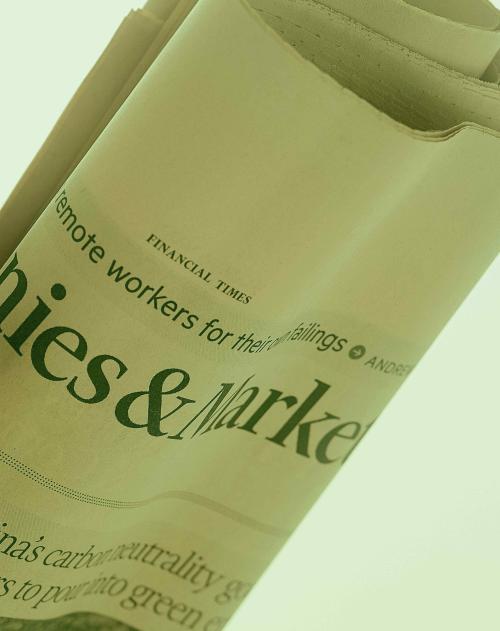If you have any questions or would like to get in touch, submit a call back request and our team will contact you as soon as possible or call us on 020 7499 6424 or email us at [email protected]
Eurozone economy falls into a technical recession
The European Central Bank stays focused in its fight against inflation with higher interest rates.

Investor concerns over weak economic data and the banking sector crisis subsided somewhat at the start of the period. But fears of a global economic slowdown persisted, especially as China’s economy appeared to lose some of its earlier economic reopening momentum from last year’s Covid-19 lockdowns.
Eurozone GDP fell -0.1% quarter on quarter in the first three months of 2023 after an initial estimate of a 0.1% rise. This meant the eurozone economy fell into a technical recession (defined as two consecutive quarters of falling GDP) as GDP also fell -0.1% in the final quarter of 2022. Despite the challenging economic picture, the IMF in April forecast Eurozone real GDP growth for calendar year 2023 of 0.8%, rising to 1.4% in 2024.
Annual eurozone inflation rose marginally to 7.0% in April from 6.9% in March. Although rises in food prices slowed, energy prices and the cost of services were higher. A larger-than-expected fall in annual inflation in May to 6.1% was the lowest level since February 2022.
However, inflationary pressures remained. A fall in seasonally adjusted unemployment to a record low of 6.5% in April meant wage-driven inflation remained a concern for markets and policymakers. At a country level, the German economy shrank -0.3% on a quarterly basis in the first quarter of 2023 as prices and borrowing costs rose. This was the second consecutive quarter of contraction and put Europe’s largest economy into a technical recession.
Given still-sticky inflation, the European Central Bank (ECB) increased its deposit rate by 0.25% to 3.5% in May. This was the eighth consecutive interest rate rise and took the deposit rate to its highest level in 22 years. The ECB said it expected to announce further rises to bring inflation back to its target level of 2.0%. ECB President Christine Lagarde noted that inflation was “projected to remain too high for too long”.
Unsurprisingly, consumer confidence remained subdued during Q2. The reading from the ECB’s Consumer Expectations Survey for economic growth at the start of the period showed that the view for the next 12 months was negative. Meanwhile, the European Commission’s Economic Sentiment Indicator produced lower-than-expected readings throughout Q2, remaining well below its long-term average.
Test edit
The region continued to face heightened geopolitical risks as Russia’s invasion of Ukraine showed little sign of ending. The destruction of the Kakhovka Dam in southern Ukraine and subsequent extensive flooding, along with an increase in fighting, underlined the unpredictable outcome of the war.
Brooks Macdonald’s view
We have a neutral outlook for Developed Europe (excluding UK) equities. European natural gas prices, having fallen sharply earlier in the year, are providing some relative relief for both businesses and households. Additionally, the hope is that China’s economic reopening can over time help to feed into European export-led economic growth. Despite challenging near-term economic data, the European Central Bank (ECB) in June continued to forecast positive annual average Real (constant prices) GDP (Gross Domestic Product) growth across the euro area for 2023, 2024 and 2025. Finally, supporting value-investment-style exposures added earlier this year, the region’s banks are expected to see an improved profit outlook medium term given a backdrop of positive nominal interest rates, versus the hitherto decade of arguably lost-earnings under the ECB’s prior negative interest rate regime. While structural tensions between euro area monetary union versus fiscal and political sovereignty remain, these concerns are now balanced by the relatively more constructive outlook we see.
Important information
The views in this Quarterly Market Overview report are correct as at 29 June 2023. All information is current at the time of issue and, to the best of our knowledge, accurate.
Investors should be aware that the price of investments and the income from them and go down as well as up and that neither is guaranteed. Past performance is not a reliable indicator of future results. Investors may not get back the amount invested. Changes in rates of exchange may have an adverse effect on the value, price or income of an investment. Investors should be aware of the additional risks associated with funds investing in emerging or developing markets. The information in this document does not constitute advice or a recommendation and you should not make any investment decisions on the basis of it. This document is for the information of the recipient only and should not be reproduced, copied or made available to others.
Request an initial consultation
Request an initial consultation
If you have any questions or would like to get in touch, submit a call back request and our team will reach out.
Get in touch
Get in touch
or call us on: 020 7499 6424
or email us at: [email protected]






